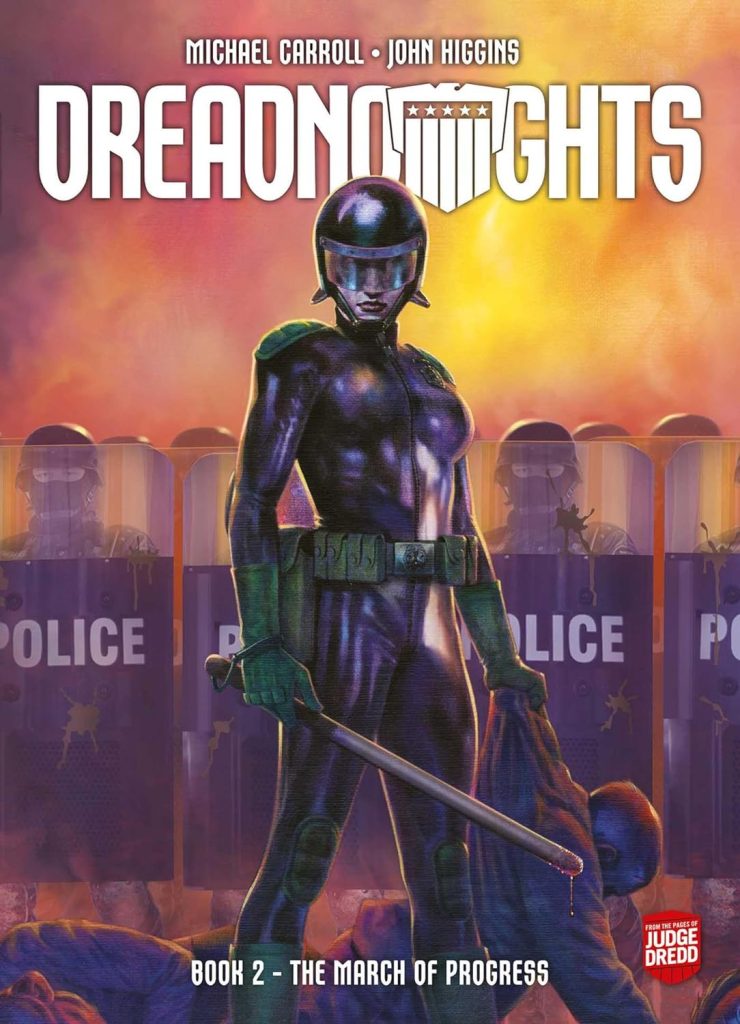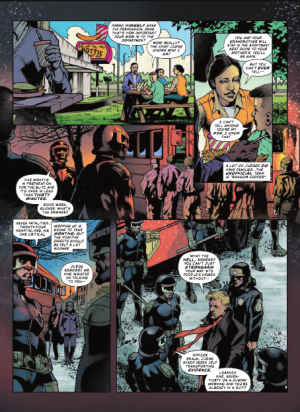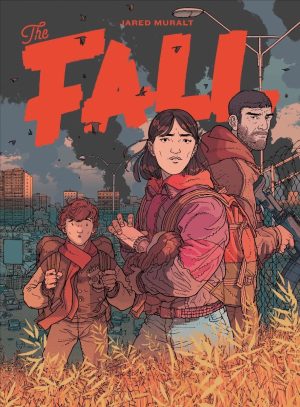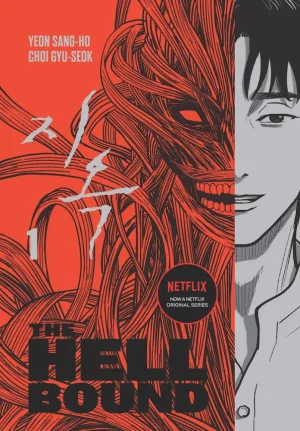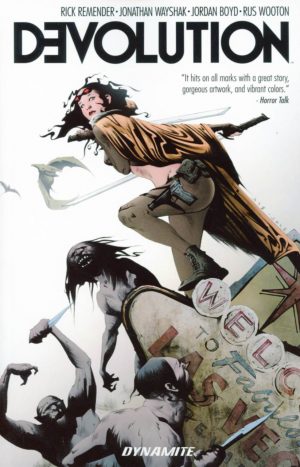Review by Frank Plowright
Dreadnoughts is a trip back into the past of the society that spawned the Judge system and Mega-City One. Society is experiencing a fragile balance, with disintegration a possibility, and as seen in Breaking Ground, the response of the authorities is ever more authoritarian with little regard for civil rights. The viewpoint provided is Judge Veranda Glover, who has no doubts about what she’s doing.
Michael Carroll begins this second volume with the terrifying concept of Judges blitzing a crime-ridden neighbourhood, not targeting individuals, but kicking down every door in the area, shooting first and asking questions afterward. John Higgins draws the full horror of such brutality. However, Dreadnoughts isn’t a celebration of violence, but a nuanced extrapolation of how such a society could be generated. Early on we meet Vine, a lawyer who once managed to have a client acquitted despite a room full of people witnessing him murder someone with a chainsaw. Vine exploited a system, and Glover considers such exploitation as directly leading to the introduction of Judges who take action on the street.
It’s very relevant in 2024. How different is the crime blitz priority of dealing with criminals by saturating an entire area to the Israeli state constantly justifying multiple deaths on the basis that someone from Hamas was suspected to be present in every Gaza building they’ve bombed? Ends and means is an ages old argument with constantly shifting parameters. Glover applies the chilling phrase of “social chemotherapy”.
The opening sequence is grim, yet Carroll escalates the horror with well conceived scenes, each of them impeccably drawn by Higgins whose detailed art is atmospheric and the highlight of a long career. He brings out the horror without sensationalising it, amplifying the action and delivering gravitas to the quiet moments. The mood is downbeat, and the art reflects that, with Sally Hurst muting the colours and setting much of the action at twilight.
At its core The March of Progress is a power struggle. The times are lawless and the Judges are a new solution, but are they capable of survival when the full force of a long established crime cartel is unleashed against them? Carroll builds the threat efficiently, first via underlining reputation, for which he uses the methods of Latin American gangsters, and then establishing the premise that for the Judges, even though their system has just been developed, there’s absolutely no compromise. He cleverly introduces a constantly whispering voice of temptation, and then a really effective threat, so will Glover prioritise the law or personal matters? A beauty of Dreadnoughts is it being set at a time when choice is still possible.
A second story takes place further away from the city where a Sheriff still upholds the law. But not for much longer. It’s simpler, but given a richness by Carroll explaining how corruption spread and for the first time in Dreadnoughts a Judge not being the focus. It’s also a clever reversal of the first story’s version of the law being under attack, and a glimpse into the future with a remorseless instrument of justice. The home truths come tumbling out as disintegration ensues, and the combination of Higgins and Hurst again deliver every dark moment. There is a lapse of credibility in order to comply with cinematic law, but the remainder is again excellent.
Dreadnoughts started strongly, and this is even better.
